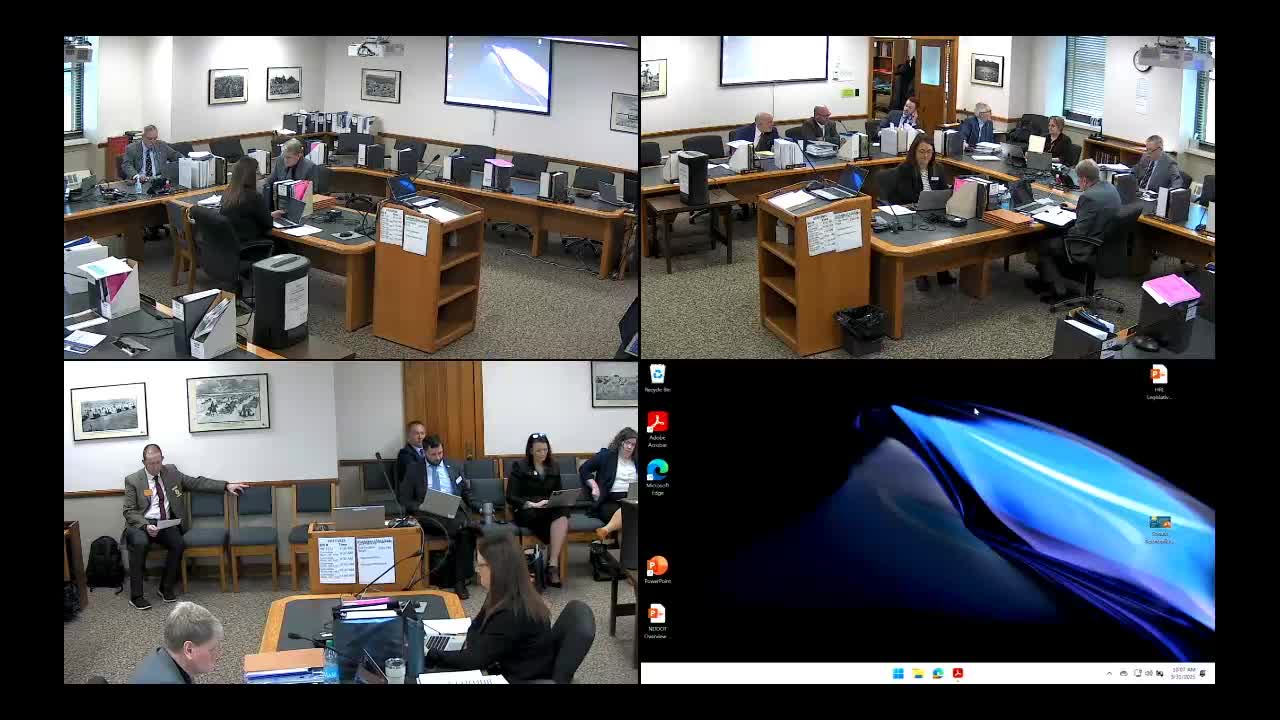Committee pauses bill raising reckless-endangerment penalties after DOC fiscal briefing
Get AI-powered insights, summaries, and transcripts
Subscribe
Summary
Senators heard DOC staff explain how reclassifying reckless endangerment with a firearm from a Class C to a Class B felony would increase mandatory prison terms. Lawmakers set the bill aside to request sponsor justification and further information about long-term fiscal impacts.
The committee paused consideration of House Bill 12-25, which would increase penalties for reckless endangerment committed with a firearm, after receiving fiscal testimony from the Department of Corrections and Rehabilitation.
Nut graf: DOC staff told the committee that elevating reckless endangerment committed with a firearm from a Class C to a Class B felony would increase mandatory minimum imprisonment and raise future biennium costs. Senators decided to set the bill aside and seek further policy justification from the bill sponsor and the policy committee.
Tom Earhart, chief probation and parole officer for DOC, testified neutrally on the fiscal note. He said a Class C felony currently carries a two‑year mandatory prison term without parole under the armed-offender statute; a Class B armed offender penalty carries a four‑year mandatory minimum. DOC’s actuary compared average sentences: the fiscal-note analysis showed sentenced Class C reckless-endangerment cases averaged about 3.83 years under the existing classification and a Class B average of about 5.49 years under the alternative classification. Adding the extra time, Earhart said, would not increase line‑item costs in the near term but would increase DOC population and costs into the 2028‑onward biennium.
Committee discussion focused on the policy justification for increasing statutory penalties, how the habitual‑offender section in the bill interacts with truth‑in‑sentencing language, and the projected fiscal impact for the 2027–29 biennium (the fiscal note projected multimillion-dollar costs tied to longer average terms). Senator members said they wanted the policy committee or the bill sponsor to explain the problem the bill seeks to fix before appropriations committee members acted on the fiscal note.
Ending: The committee set HB1225 aside pending further explanation from the sponsor and policy proponents; no final vote on the bill or on funding occurred.
